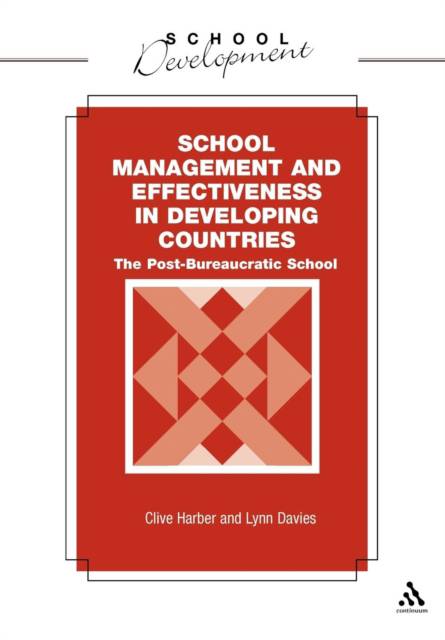
- Afhalen na 1 uur in een winkel met voorraad
- Gratis thuislevering in België vanaf € 30
- Ruim aanbod met 7 miljoen producten
- Afhalen na 1 uur in een winkel met voorraad
- Gratis thuislevering in België vanaf € 30
- Ruim aanbod met 7 miljoen producten
Zoeken
School Management and Effectiveness in Developing Countries
The Post-Bureaucratic School
Clive Harber, Lynn Davies
€ 93,45
+ 186 punten
Omschrijving
This book is quite different from existing 'Western' books on school effectiveness. It describes and analyses the way in which schools operate in developing countries and also tries to explain why they are as they are. Examining them at three levels - the macro, the meso and the micro - the authors use a theoretical framework that they have termed 'post-bureaucracy.' The book has four interlinked sections. First the authors examine the existing economic and theoretical contexts around school effectiveness, including an analysis of the causes of economic crisis and its impact on school management. In the second section the analysis of schools as bureaucratic facades is proposed. The reality of school life, from which any theory of school effectiveness must derive, is illustrated by an ethnographic account of the job of the headteacher in developing countries. The third section explores different ways to understand this reality, operating on three levels: global relationships, national and community cultures, and individual agency. In the final section Haber and Davies draw these levels and realities together. They argue for the democratization of schools as the only way forward for effective education fordevelopment.
Specificaties
Betrokkenen
- Auteur(s):
- Uitgeverij:
Inhoud
- Aantal bladzijden:
- 200
- Taal:
- Engels
- Reeks:
Eigenschappen
- Productcode (EAN):
- 9780826479105
- Verschijningsdatum:
- 8/02/2006
- Uitvoering:
- Paperback
- Formaat:
- Trade paperback (VS)
- Afmetingen:
- 166 mm x 241 mm
- Gewicht:
- 344 g

Alleen bij Standaard Boekhandel
+ 186 punten op je klantenkaart van Standaard Boekhandel
Beoordelingen
We publiceren alleen reviews die voldoen aan de voorwaarden voor reviews. Bekijk onze voorwaarden voor reviews.








